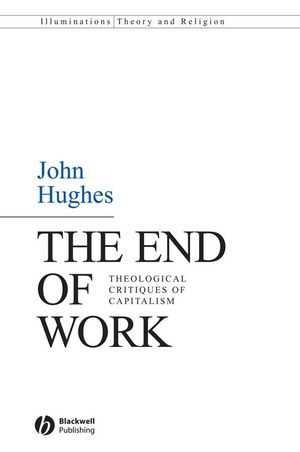The End of Work: Theological Critiques of CapitalismISBN: 978-1-4051-5893-0
Paperback
264 pages
November 2006, Wiley-Blackwell
 This is a Print-on-Demand title. It will be printed specifically to fill your order. Please allow an additional 10-15 days delivery time. The book is not returnable.
Other Available Formats: Hardcover
|
||||||
"Adam was expelled from the garden of Eden to till the ground in the sweat of his face, so the bible says, leaving us with centuries of theological argument about how to relate the reality for so many people of work as toil, drudgery and effectively a curse, to the equally familiar experience of work as creative achievement and personal fulfilment. Post-Christian we may now be in Britain, yet in a society still reeling from de-industrialization, with unemployment endemic in certain quarters, with leisure activities expanding vastly, and so on, there is a rich and complex Christian tradition of thinking about the nature of work which John Hughes puts back on the agenda in this provocative book." Fergus Kerr, University of Oxford
"John Hughes has written not about work but about the 'end' of
work. But this is the most far-reaching question imaginable in
practical reason. To what end do we exert ourselves at all? What do
we hope to achieve? Through a tour of reading in nineteenth and
twentieth century thinkers that is as subtle and sympathetic as it
is diverse and adventurous he has shown us how the ancient struggle
between the fine and the useful has been played out dramatically in
the post-industrial West, and holds the key to a great deal that we
think of as modernity. Here is an exciting new voice contributing
to the interpretation of our moral predicaments. I cannot imagine
anyone putting Hughes’ book down without having learned
something important." Oliver O'Donovan, University of
Edinburgh
"Its strength lies in its illuminating discussions of a fairly
wide range of writers."
Times Higher Education Supplement



